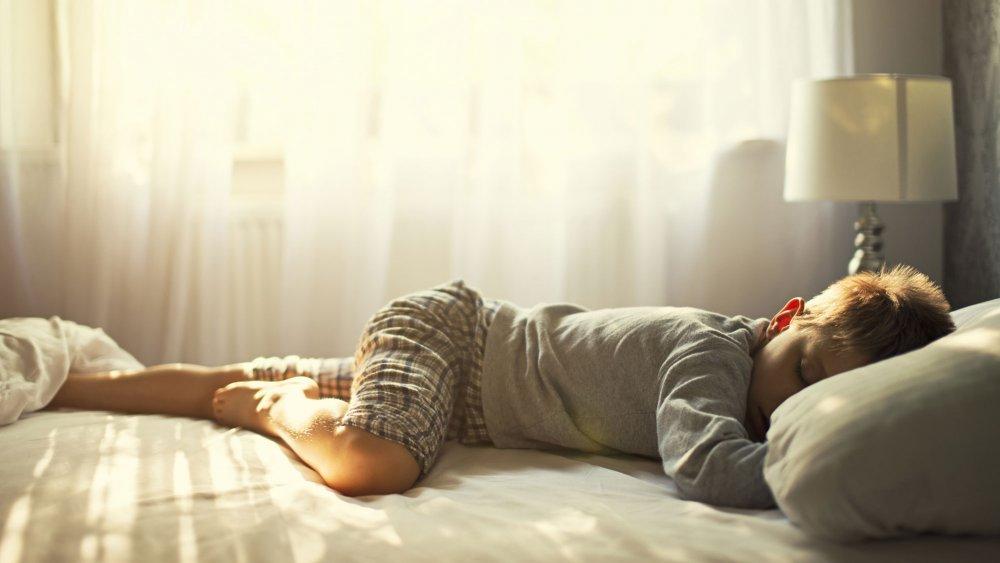
Hypersomnia: is my child sleeping too much?
By Julie CaronShareSend by email
I certify that I do not send unwanted e-mailsA tired, sleepy child who sleeps more than the recommended hours of sleep, is it serious? When can we really speak of hypersomnia? The point with Marie-Françoise Vecchierini, neuro-psychiatrist at the Sleep Center at the Hôtel-Dieu de Paris.If some parents have trouble getting their children to sleep, others may come to wonder about the many hours of sleep of their offspring. In case of excess sleep, we speak of hypersomnia.
How to predict insulin resistance and metabolic syndrome in #PCOS? WAIST TO HEIGHT RATIO!!! https://t.co/qcXicsD42W
— Fiona McCulloch ND Sat Sep 03 04:45:46 +0000 2016
What is meant by hypersomnia?
The term hypersomnia encompasses several things. It can both be used to describe drowsiness during the day, either in relation to too short a sleep time or despite long night sleep durations. These bouts of daytime sleepiness have many possible causes. We then speak of secondary hypersomnia. But there are also primary or central hypersomnias, diseases which are essentially narcolepsies and idiopathic hypersomnia. Narcolepsy is a rare disease that affects approximately 0.03% of the population, but the diagnosis can be difficult to establish, especially in children. Generally, central hypersomnia is only exceptionally diagnosed before the age of 6 and is more frequently diagnosed from adolescence.
Video of the day:How do I know if my child who sleeps too much has hypersomnia?

When should a parent worry between a child who sleeps a lot and a child who sleeps too much? Above all, it is important to eliminate certain causes of these drowsiness and of his great fatigue. Indeed, the child's sleep changes a lot over the years. So start by determining if your child has no sleep debt, if he gets enough sleep at night. Indeed, drowsiness during the day can be the consequence of a lack of sleep at night. Sleep apnea in children can also cause fatigue during the day. Also ask yourself if your child is on treatment. Some medications can induce drowsiness. Excessive sleep can also occur in the case of certain genetic, metabolic, endocrine and neurological diseases (diabetes, hypothyroidism, etc.) Finally, from adolescence on, drugs are a factor that should not be overlooked before thinking about central hypersomnia.
What should alert you if all the previous possibilities have been ruled out:
If you notice one or more of these signs, do not hesitate to talk to your doctor or go directly to a specialized sleep clinic.
How to establish a diagnosis of central hypersomnia and treat it?
For secondary hypersomnia, it will be a question of establishing then of treating the causes of these excesses of sleep. In cases where the suspicion of primary hypersomnia is confirmed, your child will have to undergo a battery of assessments and examinations (brain imaging, etc.). Depending on the results, the specialists will advise the implementation of lifestyle and dietary measures or the taking of a background treatment.
Read also: Share






